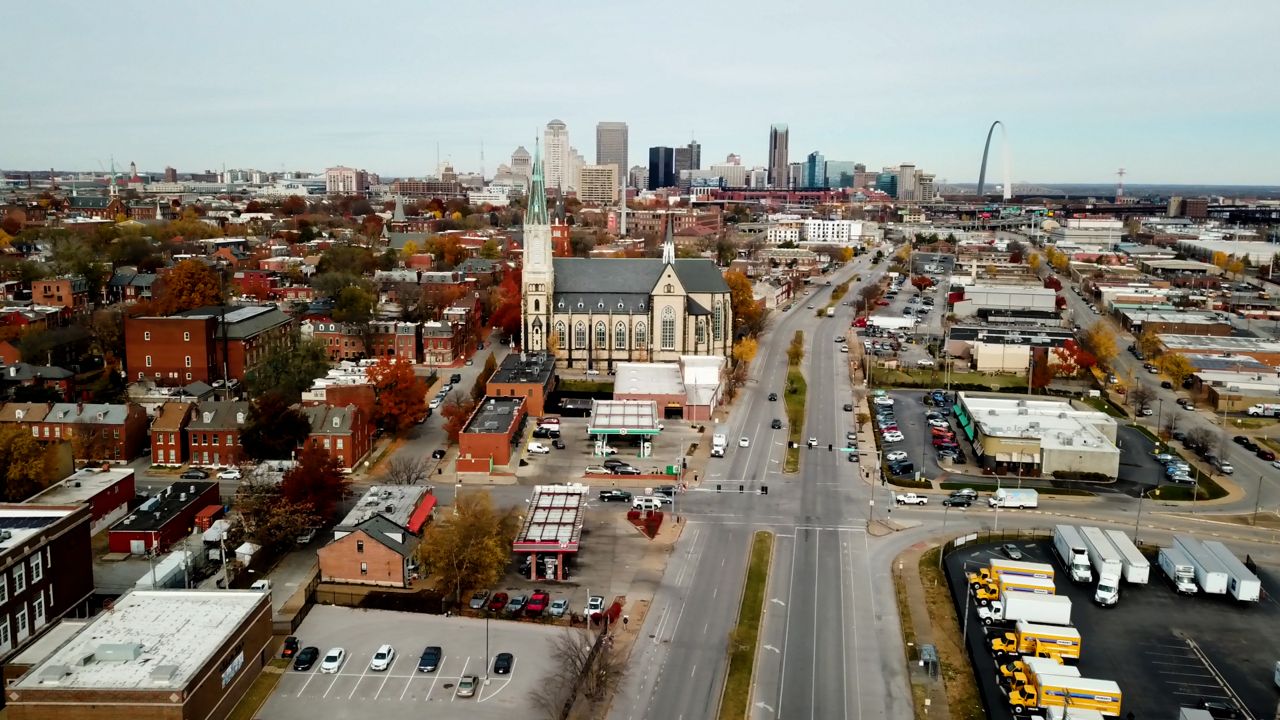ST. LOUIS–A circuit court judge ruled Thursday that the city of St. Louis has to pay plaintiffs who sued for earnings tax refunds while working from home during the pandemic. It comes after their refund requests were denied by the City Collector of Revenue’s office. It’s a case that the judge’s ruling noted could have a “potentially profound effect on the City’s budget.”
Plaintiffs first filed suit in March 2021, and the court dismissed some of the counts in January 2022.
In Thursday's ruling, Judge Jason Sengheiser explained that for several years prior to the pandemic, the City Collector did issue refunds to the nonresident plantiffs for the number of whole days they “worked outside the city.”
Sengheiser’s ruling said when the Collector’s office denied the refunds for the days the plantiffs worked virtually during 2020, it unilaterally changed the criteria for refunds without formally changing the rule, or pursuing a change to the law that authorizes the earnings tax.
“It seems this sudden surge in telework caused the Collector to fear a high demand for the Earnings Tax refund and its potentially profound effect on the City's budget,” Senheiser wrote.
According to the city, roughly 36% of the city’s general revenue comes from the Earnings Tax. It is unclear how much of that tax is generated by teleworking employees.
The ruling entitles the plaintiffs to refunds for earniings taxes paid in 2020 to present, plus interest.
Friday afternoon, the attorneys for the plaintiffs in the case said in a news conference that they planned to work on an appeal to gain class action status, something they'd tried and failed to win previously. They've heard from hundreds of potential plaintiffs since they first filed the case, and dozens just since the decision was released Thursday. A class action suit could conservatively include anywhere from tens of thousands of people to as many as 100,000, the attorneys said.
"It's never been a vendetta against the city or the earnings tax. It's just a matter of justice in that the collector always interpreted it the way we did by the way, prior to the pandemic and then just changed course out of this fear of lost revenue and that's not the way our laws work. That's not the way our system works," said attorney Mark Milton.
The deadline for taxpayers to appeal 2020 Earnings tax refunds has already passed.
Milton and the other plantiffs' attorney Bevis Schock plan to be in touch with the city's legal counsel next week informally to see if the city plans an appeal. The attorneys also believe the form the city still uses when taxpayers file their appeal for the refund needs to be changed to comply with the ruling, and could seek further relief in court if it isn't updated.
A city spokesman declined comment late Thursday afternoon and did not immediately respond to a request for comment after Friday's news conference.
From Judge Jason Sengheiser’s ruling Thursday:
“Prior to the advent of the COVID-19 pandemic in early 2020, the Collector did not distinguish virtual work outside the City from business travel outside the City for purposes of issuing Earnings Tax refunds. However, for the tax year 2020 and later, the Collector is not issuing Earnings Tax refunds for virtual work outside the City, but is issuing Earnings Tax refunds for business travel outside the City. At all times relevant hereto, the Collector has used a standard of 260 work days per year in calculating Earnings Tax refunds, except in instances where the taxpayer provides evidence to support a different number of work days.
Therefore, to sum up the general facts, Plaintiffs worked remotely in their homes, which were located outside of the City. The remote work Plaintiffs performed for the city-based employers was substantially the same as the work performed at their employers location in the City. Plaintiffs’ employers supplied them with (or paid or reimbursed them the cost of) hardware and software technologies to work remotely from their homes. These non-residents sought refunds for the Earning Tax automatically deducted from their paychecks and/or paid under protest. In 2019 and 2020 and presumably prior years, the non- residents submitted Earning Tax refund requests for the prior tax years based on the number of whole days they “worked outside the city.” The Collector provided the refunds as requested.
In 2021,the non-residents submitted refund requests for the days they worked virtually in 2020. The Collector denied those refund requests for the days worked virtually in 2020. So beginning in tax year 2020, despite no changes in the Earning Tax law, the Collector stopped issuing refunds for work conducted outside of the City, unless the work was done while traveling, a distinction that was not previously made.”



